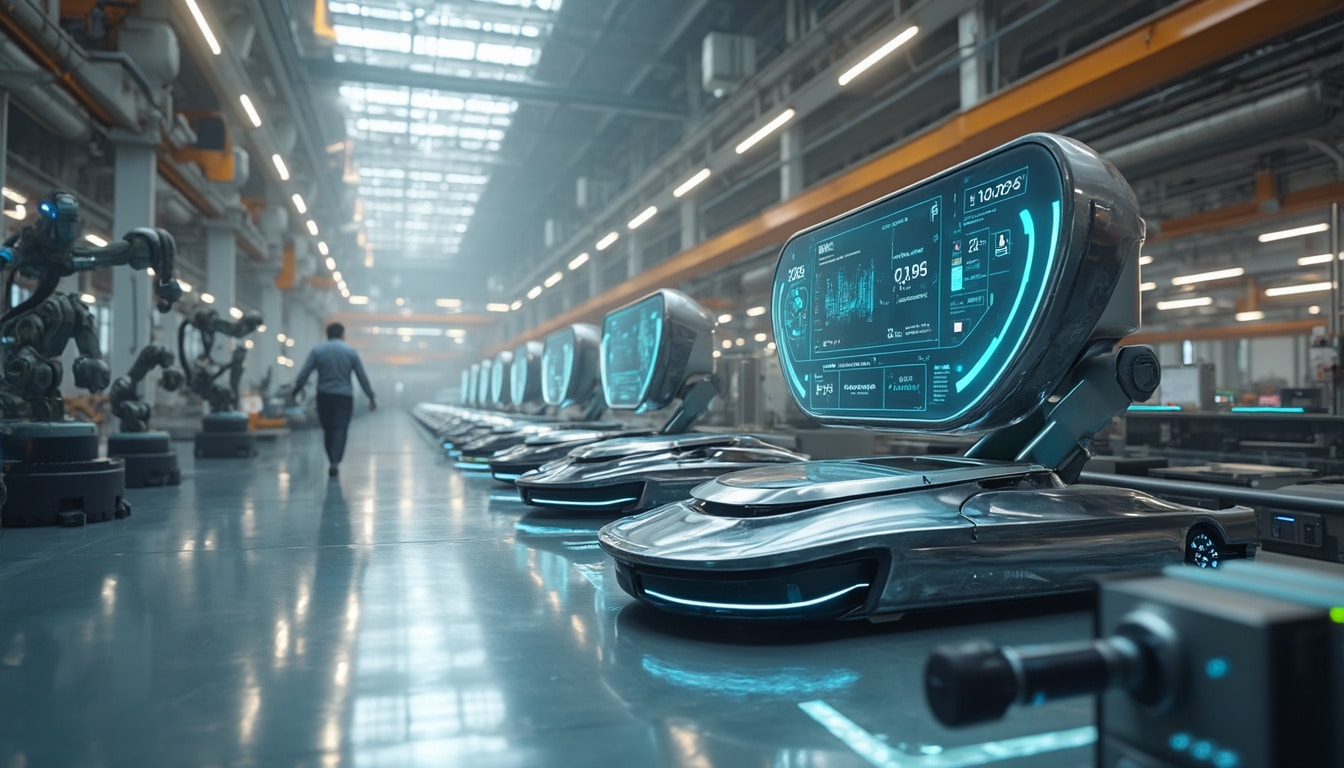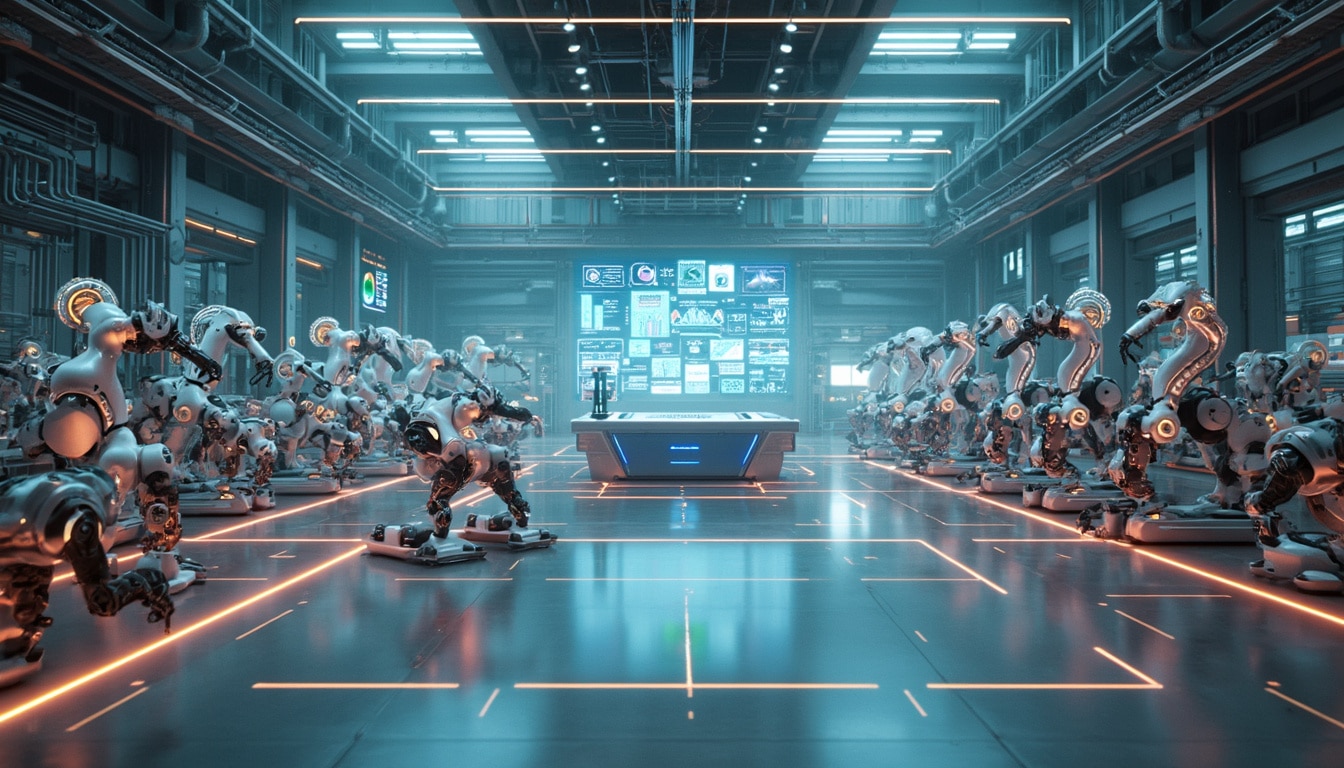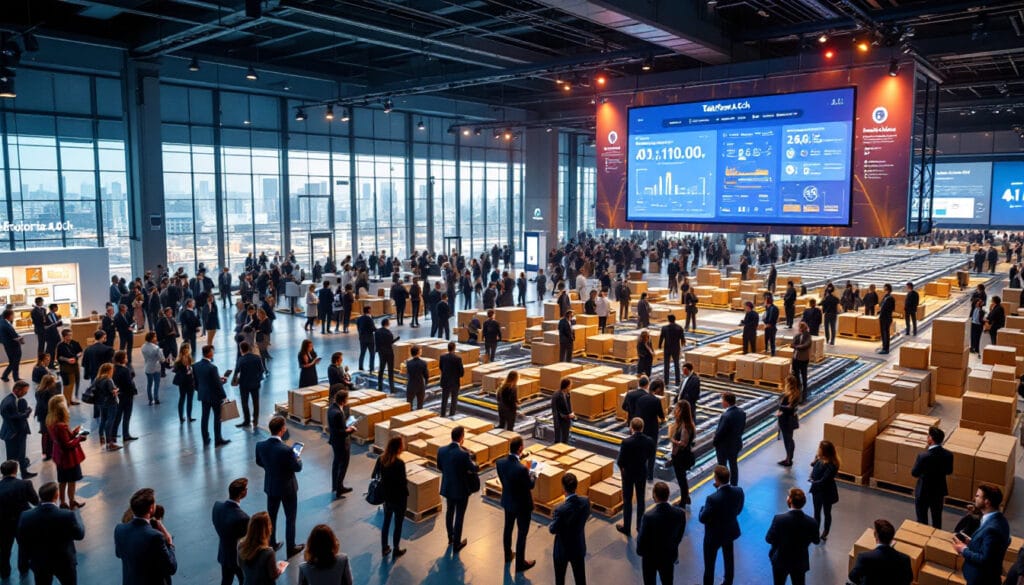The advent of Industry 4.0 is transforming the landscape of industrial production by integrating advanced technologies such as cyber-physical systems, artificial intelligence (AI), and the Internet of Things (IoT). This new era promises a revolution in the management of production flows, particularly through the implementation of multi-robot task scheduling. Allocating tasks to robots optimizes production lines, enhancing efficiency, flexibility, and responsiveness to the increasingly complex demands of modern markets. At the heart of this ecosystem are advanced Manufacturing Execution Systems (MES), which ensure coordination between the planning aspect and the concrete execution of tasks. Based on real-time data, these systems dynamically adjust production schedules, thus guaranteeing smooth and responsive operations. In this context, challenges lie in the optimal task allocation among various robots, managing bottleneck and buffer constraints, and optimizing execution time to avoid costly downtime.
In the context of Industry 4.0, production planning with multi-robot task allocation is crucial for optimizing modern manufacturing chains. The integration of cyber-physical systems, artificial intelligence, robotics, and the Internet of Things (IoT) is transforming industrial management methods. This approach promises significant improvements in production efficiency, customization, and waste reduction, enabling responses to increasingly complex requirements of modern industries.
The Manufacturing Execution System (MES) plays a central role in linking the planning and execution phases, contributing to the coordination and optimization of processes. Through dynamic adjustments of production schedules, the MES ensures efficient and responsive operations. Multi-Robot Task Allocation (MRTA) environments are particularly complex, requiring advanced scheduling systems to coordinate tasks among multiple non-identical robots, in order to avoid delays due to bottleneck and buffering constraints.
The implementation of Industry 4.0 through the use of advanced algorithms such as mixed-integer linear programming (MILP) and genetic algorithms enables effective responses to the practical needs of modern manufacturing. This enhances the capacity of MES systems to manage complex, multi-robot environments, ensuring the adaptability and precision necessary for modern intelligent manufacturing.

Table des matières
TogglePlanning in Industry 4.0
The revolution of Industry 4.0 is profoundly changing the paradigms of manufacturing, introducing a new era of smart production planning through the integration of advanced technologies. At the epicenter of this transformation is the use of cyber-physical systems that link the virtual and physical worlds to maximize production efficiency. In business, this interconnected environment allows for informed decisions based on data, adapting production in real-time to market fluctuations and customer needs. To remain competitive, companies must adopt these technologies and integrate MES systems that enable complete transparency of operations and better resource management.
Collaborative Robots and Task Allocation
With the advent of Industry 4.0, production planning increasingly incorporates collaborative robots that disrupt the way tasks are assigned across operations. These intelligent robots, also known as cobots, optimize workflows by seamlessly integrating with human workers, performing repetitive and dangerous tasks while improving safety and productivity. By adapting management systems and deploying cobots in flexible and dynamic environments, companies can reduce downtime and increase their overall production capacity. The challenge lies in the smooth integration of these systems, requiring careful planning and constant reassessment of resource management strategies.
In this context, the importance of platforms such as MOM (Manufacturing Operations Management) becomes essential for efficient task allocation to robots, facilitating decision-making and coordination among different production units. These systems must be designed to be modular and scalable, ensuring that as production requirements evolve, robotic capabilities quickly adapt to new conditions. Effective management involves the use of advanced information technologies, such as data analytics and machine learning, which enable anticipation of failures and optimization of preventive maintenance schedules.
Interoperability of Systems and Challenges
Within the framework of Industry 4.0, one of the main challenges of production planning is to ensure interoperability among various systems within the manufacturing ecosystem. As technologies such as IoT, Cloud Computing, and AI evolve, it is crucial to harmonize communication protocols and user interfaces to guarantee operational efficiency. Integrating these technologies requires a standardized framework to allow different machines and robots to collaborate seamlessly, an imperative for an uninterrupted and efficient production line.





